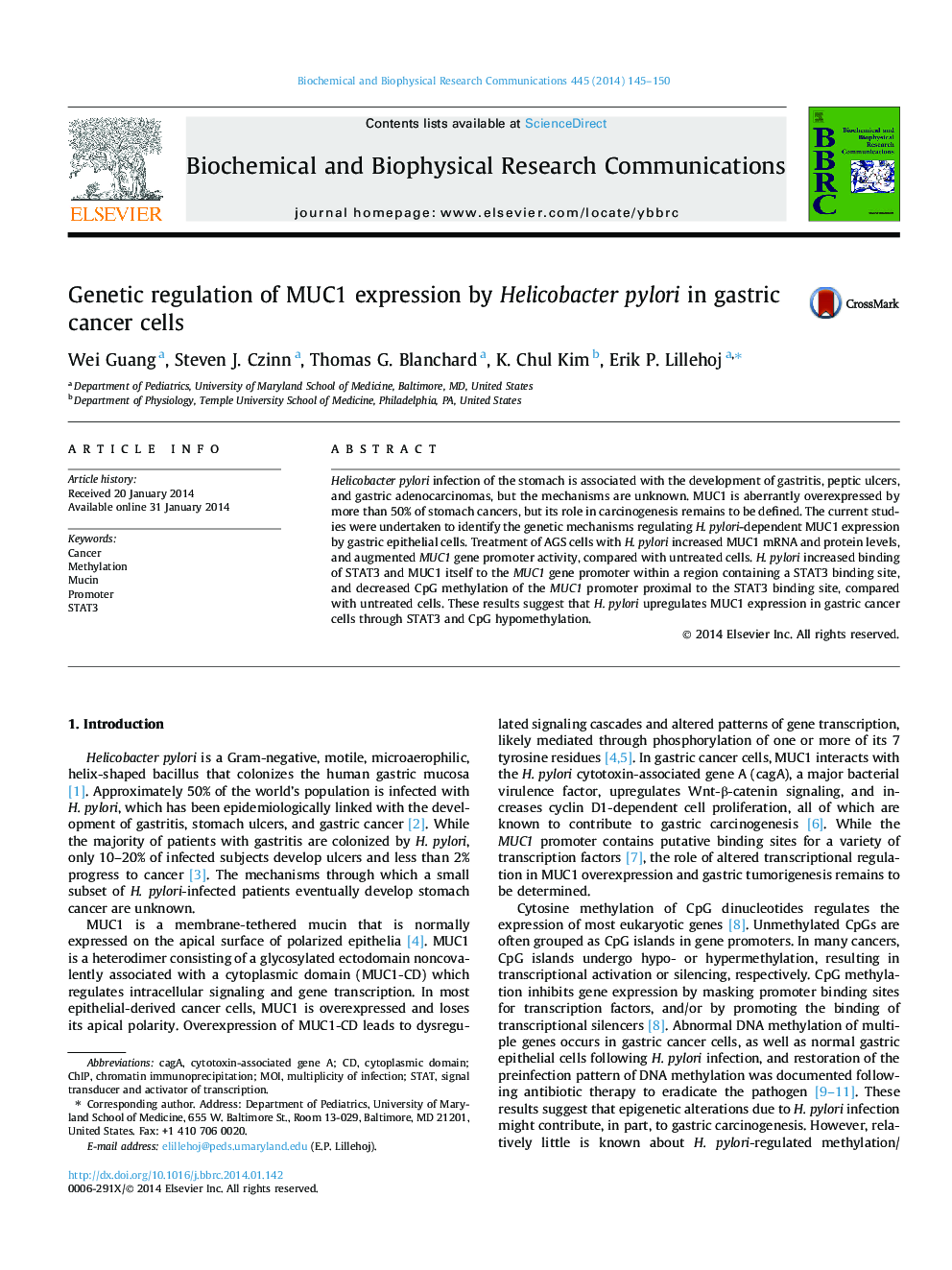| Article ID | Journal | Published Year | Pages | File Type |
|---|---|---|---|---|
| 10755904 | Biochemical and Biophysical Research Communications | 2014 | 6 Pages |
Abstract
Helicobacter pylori infection of the stomach is associated with the development of gastritis, peptic ulcers, and gastric adenocarcinomas, but the mechanisms are unknown. MUC1 is aberrantly overexpressed by more than 50% of stomach cancers, but its role in carcinogenesis remains to be defined. The current studies were undertaken to identify the genetic mechanisms regulating H. pylori-dependent MUC1 expression by gastric epithelial cells. Treatment of AGS cells with H. pylori increased MUC1 mRNA and protein levels, and augmented MUC1 gene promoter activity, compared with untreated cells. H. pylori increased binding of STAT3 and MUC1 itself to the MUC1 gene promoter within a region containing a STAT3 binding site, and decreased CpG methylation of the MUC1 promoter proximal to the STAT3 binding site, compared with untreated cells. These results suggest that H. pylori upregulates MUC1 expression in gastric cancer cells through STAT3 and CpG hypomethylation.
Keywords
Related Topics
Life Sciences
Biochemistry, Genetics and Molecular Biology
Biochemistry
Authors
Wei Guang, Steven J. Czinn, Thomas G. Blanchard, K. Chul Kim, Erik P. Lillehoj,
